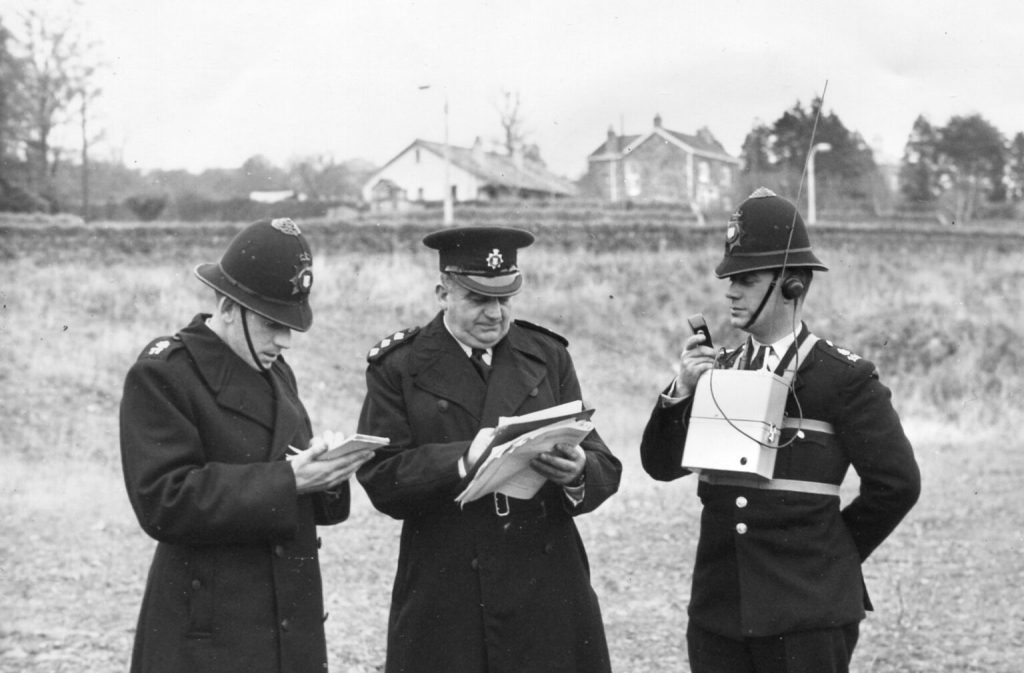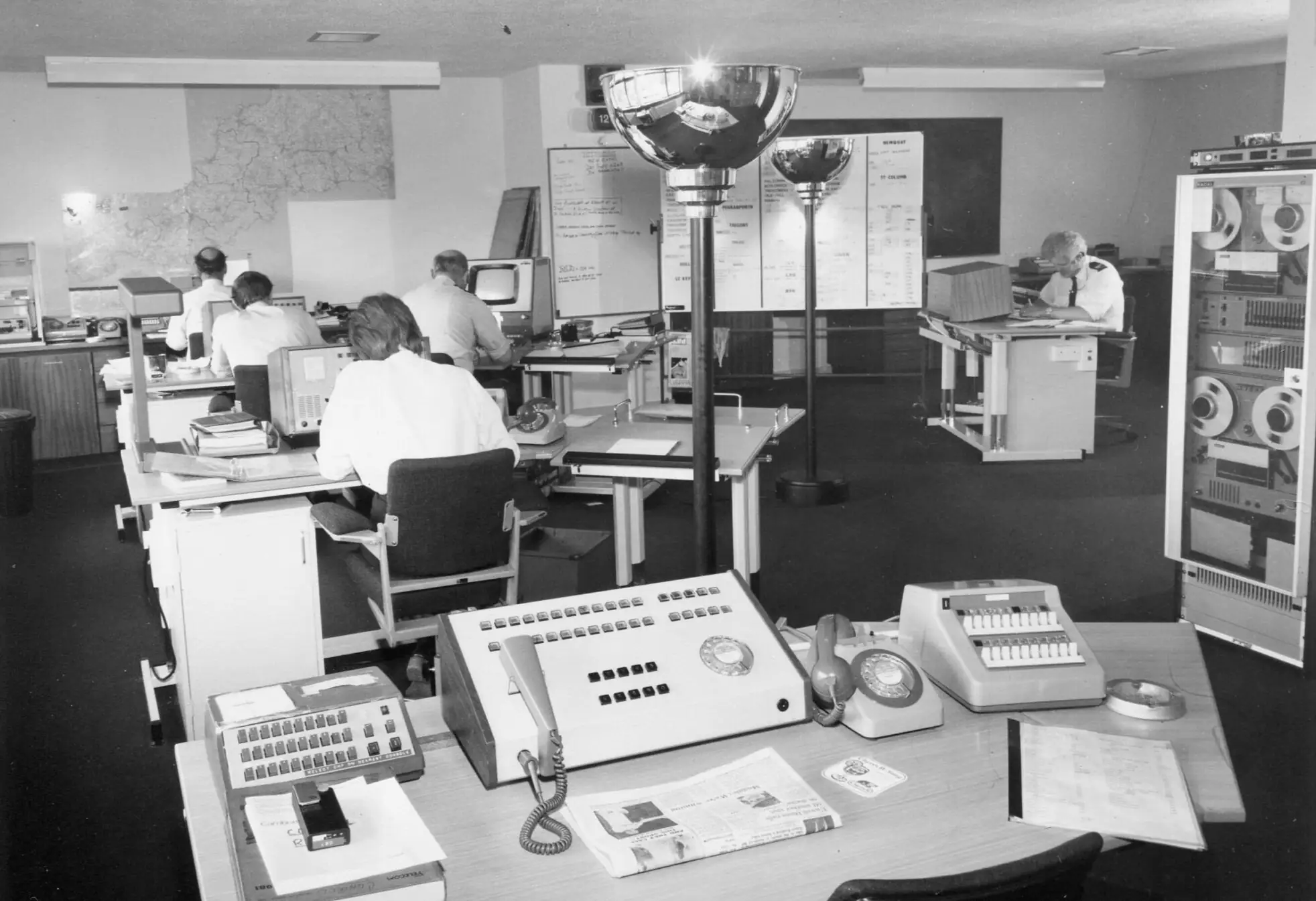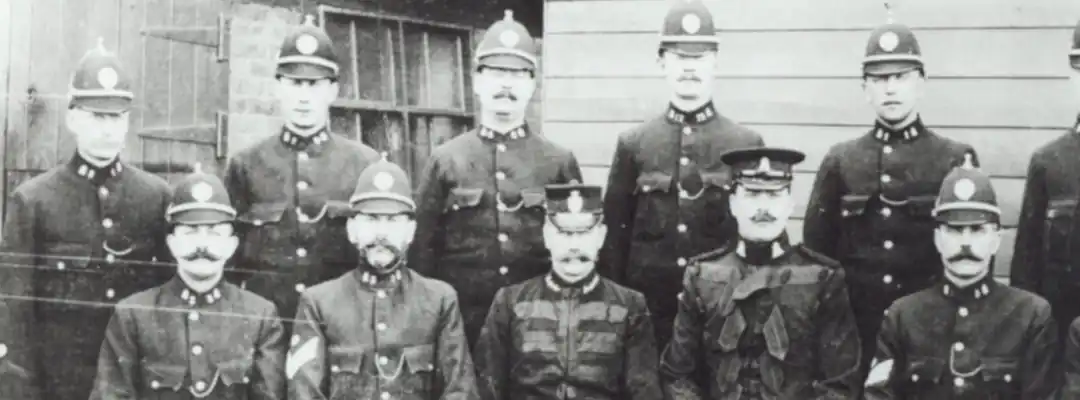Police history in Devon and Cornwall – The museum is the custodian of a large number of donated objects, documents and photographs. The aim is to preserve, catalogue and showcase the heritage in our care.
The Museum of Policing in Devon and Cornwall holds a large collection of archival documents, museum objects, stored media (such as DVDs, CDs, and video cassettes), in addition to an extensive photograph collection. One of the main challenges over that last year and a half has been sorting through the photograph collection which contains donated images of ex-police officers from Devon and Cornwall Constabulary, and its antecedent forces; as well as a large collection of 60+ boxes filled with enveloped photographs created by the old photographic department/unit of the Devon and Cornwall Police.
Before the Covid-19 pandemic, we had largely sorted through the photographs. However, we noticed that many of the images had no contextual information attached to them, such as what the image was taken for, who or what was in it, or the date of the image. Before the pandemic, we would have taken these images to force reunions or made displays and asked ex-police officers for their thoughts on the images. Unfortunately, Covid-19 meant that we were unable to do this. At the beginning of 2020, we were therefore faced with an issue – how were we going to find this information during a national lockdown?
To solve this issue, we created a closed Facebook group that only ex-police personnel could join. We then uploaded scans of the images that we needed information on, and people in the group commented any information they knew about the photograph. To ensure these images were not released to the wider world, we attached watermarks to the images and made it compulsory for those joining the group to sign an agreement that they would not publish any material released on the site. We ensured that images uploaded were legally allowed to be published to a small audience, not for profit. We also made sure that any crime photographs or images which may have contained sensitive information or GDPR issues, such as images where members of the public, who might not have consented, were not published on the site either. The idea was that we were showing police images to only ex-police personnel, and that they were staying within that space for our own purposes and needs. The scanning, uploading and data capture was managed by our lead volunteer, Pam Giles. As an ex-police officer, she knew many of the members of our site, and so was best placed to interact with them in the comments section.

Image reference PA/3/20/1/7
The Facebook group now has 393 members with more and more ex-officers wanting to join every day. We have currently uploaded and recorded the information of 1,763 photographs that otherwise would have had no context to them. The group is incredibly active; one outcome we did not anticipate was the positive impact on mental health and wellbeing to the members of the group. During the national lockdowns, we had indirectly created a space for ex-police personnel to reminisce about the old days through our images at a time when everyone needed to stay at home. The space enabled members to re-connect and interact with ex-police personnel, in addition to giving members the satisfaction of knowing they have volunteered and helped the museum. We have had numerous responses from members saying that ‘the photos are the one thing they look forward to’ or simply just thanking us for what we have done through this project. The closed Facebook group has helped to lessen the loneliness and boredom that Covid-19 wrought on our ex-police officers, as well as gain valuable information to better understand our police history.
The project has been incredibly successful and we have the members of the Facebook group to thank for this. Many larger organisations, such as ancestry or The National Archives, have benefitted from digital volunteers. By using free online tools and a known audience, we have successfully used Facebook as a means of recruiting digital volunteers. We hope that other smaller organisations like ours may be inspired to take up similar projects.


